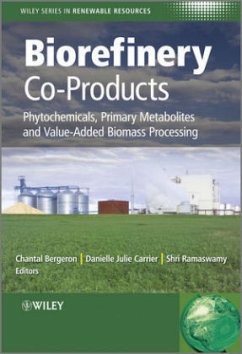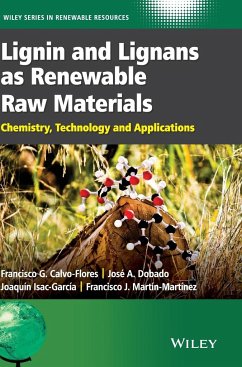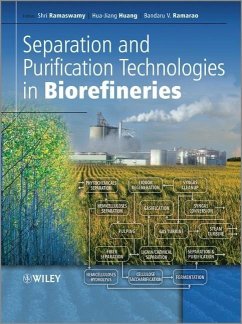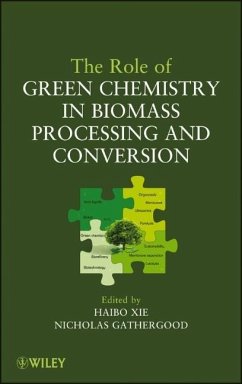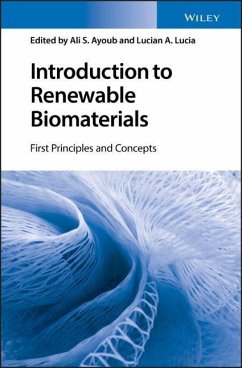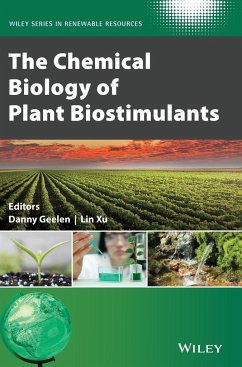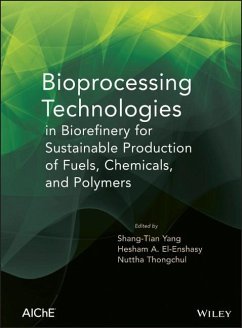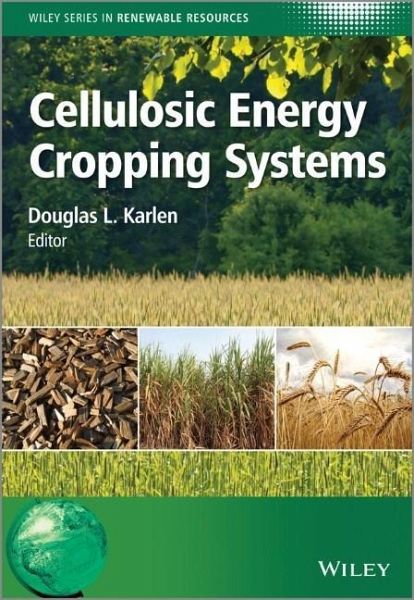
Cellulosic Energy Cropping Systems
Versandkostenfrei!
Versandfertig in über 4 Wochen
125,99 €
inkl. MwSt.
Weitere Ausgaben:

PAYBACK Punkte
63 °P sammeln!
Cellulosic Energy Cropping Systems presents a comprehensive overview of how cellulosic energy crops can be sustainably produced and converted to affordable energy through liquid fuels, heat and electricity.The book begins with an introduction to cellulosic feedstocks, discussing their potential as a large-scale sustainable energy source, and technologies for the production of liquid fuels, heat and electricity. Subsequent chapters examine miscanthus, switchgrass, sugarcane and energy cane, sorghums and crop residues, reviewing their phylogeny, cultural practices, and opportunities for genetic ...
Cellulosic Energy Cropping Systems presents a comprehensive overview of how cellulosic energy crops can be sustainably produced and converted to affordable energy through liquid fuels, heat and electricity.
The book begins with an introduction to cellulosic feedstocks, discussing their potential as a large-scale sustainable energy source, and technologies for the production of liquid fuels, heat and electricity. Subsequent chapters examine miscanthus, switchgrass, sugarcane and energy cane, sorghums and crop residues, reviewing their phylogeny, cultural practices, and opportunities for genetic improvement. This is followed by a detailed focus on woody crops, including eucalyptus, pine, poplar and willow. Critical logistical issues associated with both herbaceous and woody feedstocks are reviewed, and alternate strategies for harvesting, transporting, and storing cellulosic materials are also examined. The final sectionof the booktackles the challenge of achieving long-term sustainability, addressing economic, environmental and social factors.
Cellulosic Energy Cropping Systems is a valuable resource for academics, students and industry professionals working in the field of biomass cultivation and conversion, bioenergy, crop science and agriculture.
Topics covered include:
Identifying suitable cellulosic energy crops that are adapted to a wide range of climates and soils
Best management practices for sustainably growing, harvesting, storing, transporting and pre-processing these crops
The development of integrated cellulosic energy cropping systems for supplying commercial processing plants
Challenges and opportunities for the long-term sustainability of cellulosic energy crops
This book was conceived and initiated by David I. Bransby, Professor of Energy and Forage Crops in the Department of Crop, Soil and Environmental Sciences at Auburn University, USA.
For more information on the Wiley Series in Renewable Resources, visit www.wiley.com/go/rrs
The book begins with an introduction to cellulosic feedstocks, discussing their potential as a large-scale sustainable energy source, and technologies for the production of liquid fuels, heat and electricity. Subsequent chapters examine miscanthus, switchgrass, sugarcane and energy cane, sorghums and crop residues, reviewing their phylogeny, cultural practices, and opportunities for genetic improvement. This is followed by a detailed focus on woody crops, including eucalyptus, pine, poplar and willow. Critical logistical issues associated with both herbaceous and woody feedstocks are reviewed, and alternate strategies for harvesting, transporting, and storing cellulosic materials are also examined. The final sectionof the booktackles the challenge of achieving long-term sustainability, addressing economic, environmental and social factors.
Cellulosic Energy Cropping Systems is a valuable resource for academics, students and industry professionals working in the field of biomass cultivation and conversion, bioenergy, crop science and agriculture.
Topics covered include:
Identifying suitable cellulosic energy crops that are adapted to a wide range of climates and soils
Best management practices for sustainably growing, harvesting, storing, transporting and pre-processing these crops
The development of integrated cellulosic energy cropping systems for supplying commercial processing plants
Challenges and opportunities for the long-term sustainability of cellulosic energy crops
This book was conceived and initiated by David I. Bransby, Professor of Energy and Forage Crops in the Department of Crop, Soil and Environmental Sciences at Auburn University, USA.
For more information on the Wiley Series in Renewable Resources, visit www.wiley.com/go/rrs





